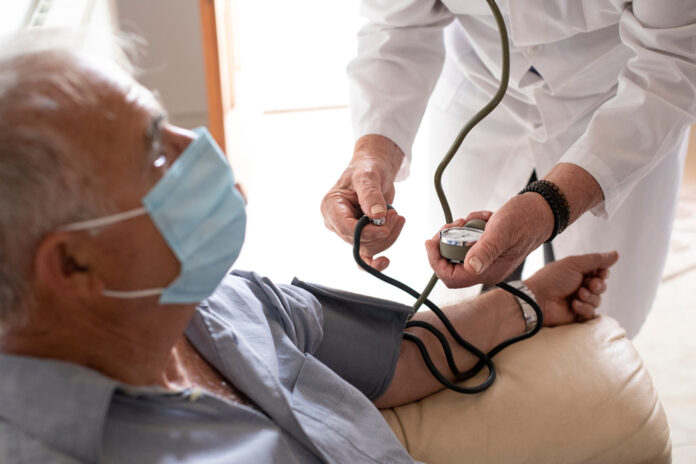
High blood pressure is a widespread disease characterized by blood flowing through a person’s arteries at above-normal pressures. High blood pressure can significantly impact your health, so it’s important to have your blood pressure checked regularly to identify any changes.
A doctor can read your blood pressure by using a blood pressure machine. Your reading is made up of two separate numbers. The first is the systolic pressure; this is the pressure when your heart’s ventricles pump blood out of the heart. The second is the diastolic pressure, the pressure between heartbeats when your heart is filling with blood.
Having your blood pressure monitored is one of the easiest vital signs to track. This basic step can help identify issues early and start treatment plans as necessary.
How High Blood Pressure Impacts the Brain
High blood pressure, medically referred to as hypertension, can have very significant consequences on your health. When you develop high blood pressure, it can lead to structural changes in your brain. Over time, it can become harder to think, concentrate or solve everyday problems.
Hypertension affects the wiring in your cells that transmit white matter. White matter is the deeper tissue found in the brain and contains nerve fibers. This increased white matter can be interrupted, and you could suffer from slower thinking and lose the ability to think clearly. Certain mental activities can become impossible to take on and complete.
How to Treat High Blood Pressure
It is never too soon to start having your blood pressure checked and monitored. It should be part of your annual check-up, but if it’s not, always be sure to ask for it. Never assume that having a healthy reading one year means that your blood pressure is always at a healthy level. It could change at any time, so regular monitoring is key.
There are a few different ways your doctor can treat this condition. No matter what age you are, it is never too late to begin monitoring your blood pressure and taking care of your physical health.
Developing a healthier overall lifestyle can decrease the risk of developing high blood pressure and help with hypertension that is already diagnosed.
The most beneficial lifestyle change you can make is eating a healthy, well-balanced diet. Adding an exercise routine will also help maintain a healthy weight, which can only benefit your hypertension and possibly eliminate it.



















